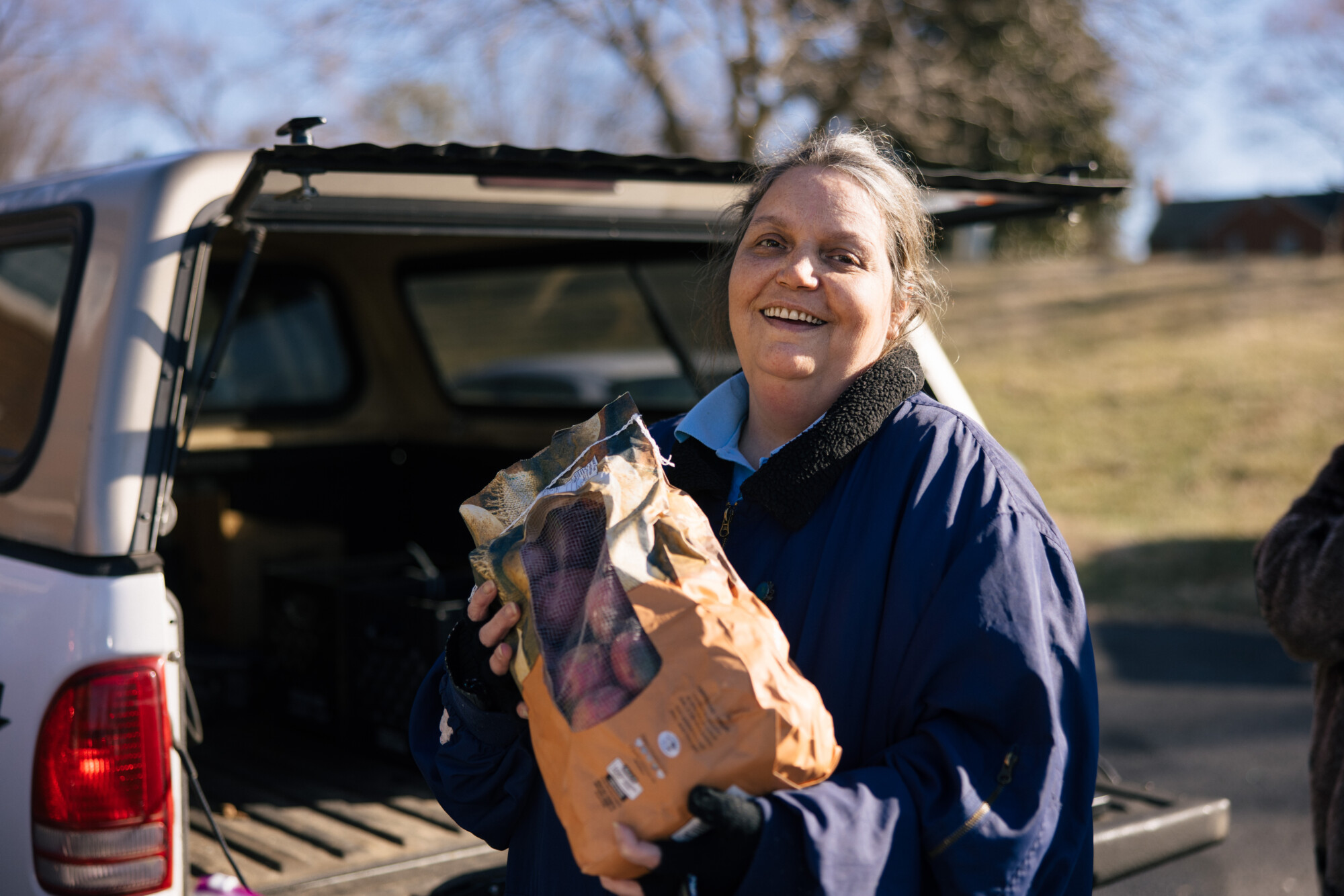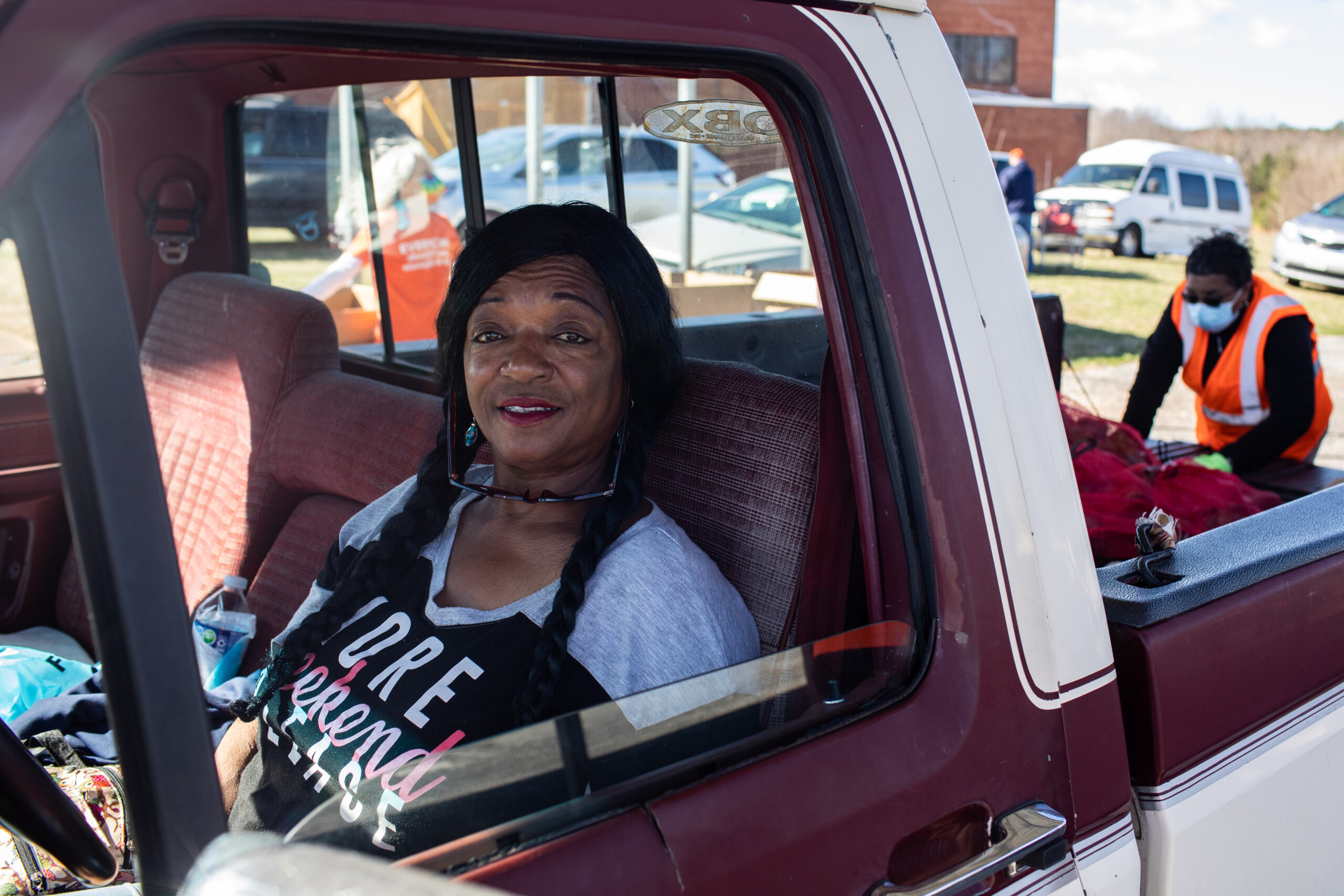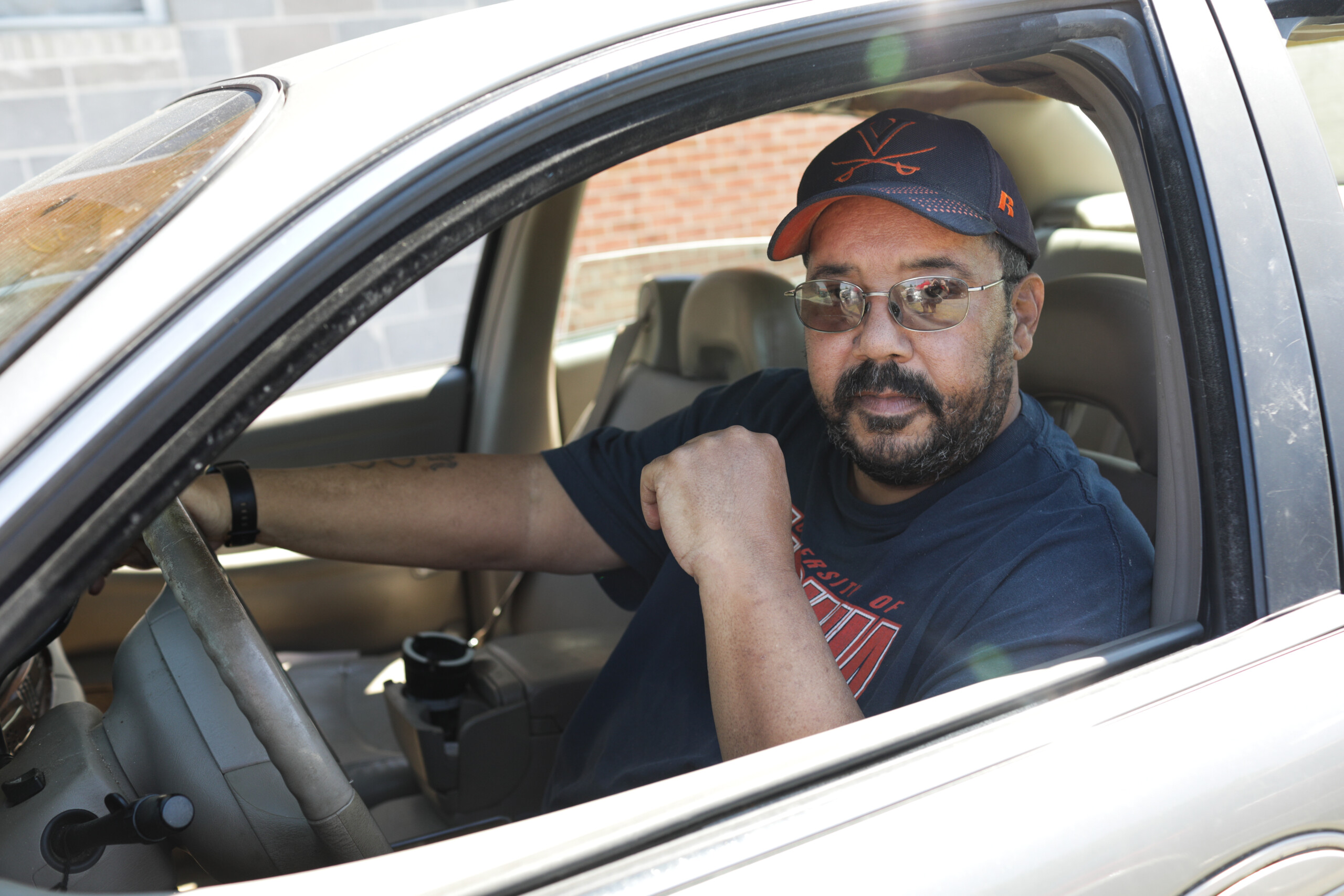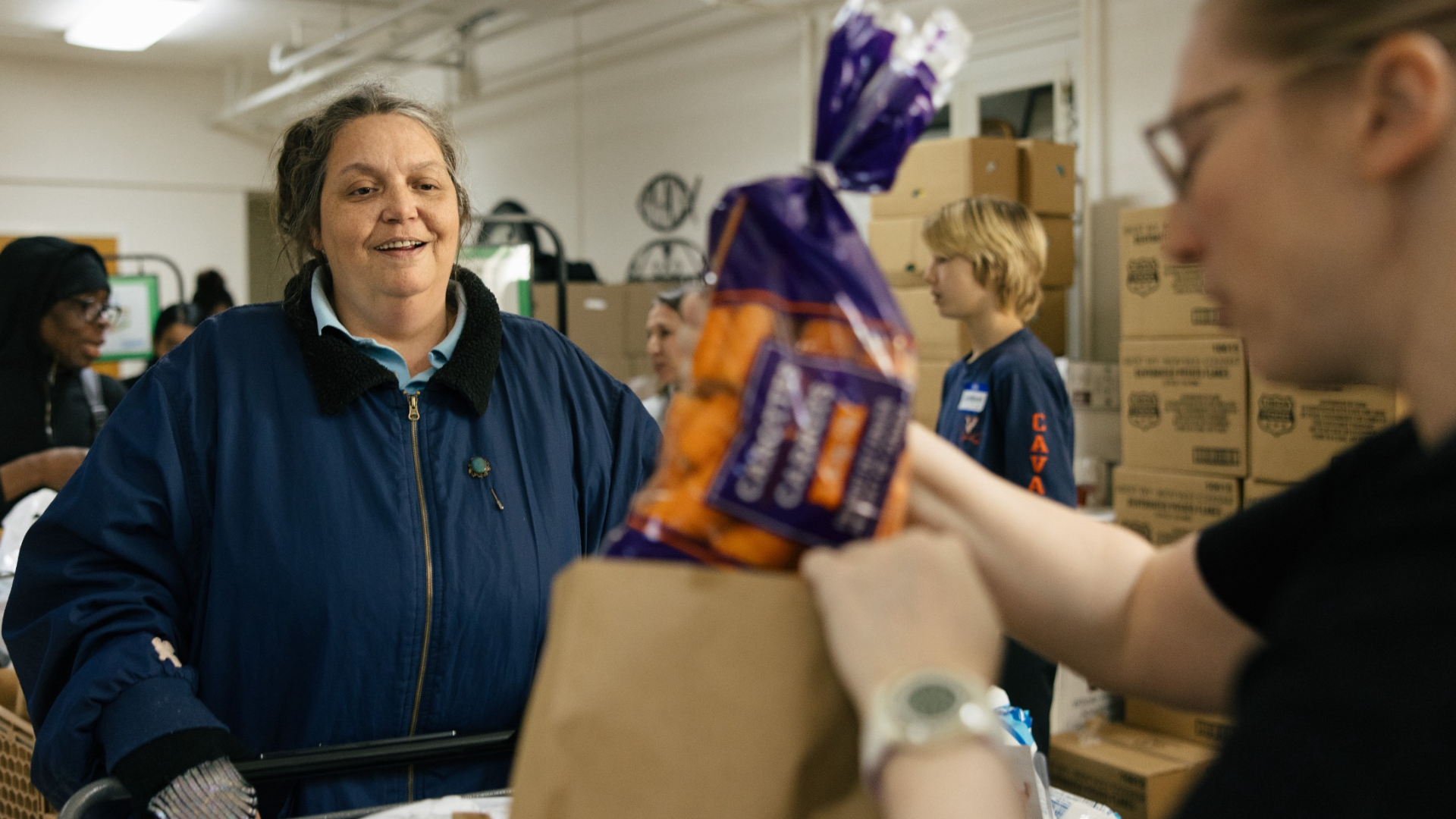Written By: Les Sinclair, Communications & PR Manager
Why is the loss of the Supplemental Nutrition Assistance Program (SNAP) emergency allotments getting so much attention lately? There are two storylines. One is about how the elimination will impact the Virginia economy. The other is how it will affect the recipients.

Meeting the Challenge Head-On
We recently welcomed a new member to our team: Benefits Outreach (SNAP) Manager, Monica Kelley. In her role for the Food Bank, Monica helps us to ensure that everyone has enough to eat by helping guests access SNAP benefits.
Anyone who needs help applying for or renewing their SNAP benefits is encouraged to contact Monica. Email mkelley@brafb.org or call (434) 465-2535.
Let’s start with the Virginia economy
According to a Center on Budget and Policy Priorities report, in 2022 alone, participants in Virginia received $2.35 billion in SNAP benefits. These have helped support local businesses and stimulate the state’s economy, as families have been able to buy more food and other necessities. The economic benefits were particularly significant in rural areas of the state, where SNAP plays a crucial role in supporting local economies. In addition, the U.S. Department of Agriculture estimates that in a weak economy, just $1 in SNAP benefits generates $1.50 in economic activity. So, this $69 million reduction translates into less money available to SNAP recipients to spend on food and other necessities, having a ripple effect on local businesses.
Segue to the individual or family level
In Virginia, the drop in SNAP benefit amount will average around $178 per household, per month, depending on household size, income, and other factors. The most drastic drop will be for older adults at the minimum benefit level whose monthly SNAP benefits fall from $281 to $23.
The Center on Budget and Policy Priorities also indicates in 2022, about 1 in 11 Virginians received SNAP benefits, totaling 794,600 residents. Families with children make up more than 65% percent of the SNAP recipients, more than 35% are in families with members who are older adults or are disabled, and 37% are in working families.
Combining reduced benefits and increasing inflation, more people are likely to seek help from food pantries, putting added pressure on organizations like the Blue Ridge Area Food Bank. In addition, the growing need to buy more food to keep our warehouses stocked will result in added costs at higher prices.
“The combination of inflation, soaring food costs and now the discontinuation of supplemental SNAP benefits could cause a spike in guest visits exceeding what we saw during the worst of the pandemic,” said Michael McKee, Food Bank CEO. “We’re fully committed to make sure that we have enough food to meet the needs of our neighbors indefinitely. That’s a huge undertaking and does require us to rely more on buying food than on donated food, and that’s not sustainable in the long term.”
SNAP in our community
1 in every 12 people is facing hunger in our service area and we are already starting to see the impact of the SNAP changes take effect. Some of our partner pantries and programs have noted an uptick in visitors in the last month. We’ve also heard stories from guests whose families are feeling the pinch. Many cite the need to budget more strictly. Some note the difficult decisions they’re having to make in order to afford groceries, like cutting back on other necessities such as gas and medicine. Here are a few of the faces of people who are affected by these changes:

Meet Anne
Anne is a caretaker. Currently, of 15-year-old twins including a daughter who has many health issues. And in the not-too-distant past, she took care of another son, now grown, as well as a sister with cancer and her daughter.
She cannot drive – because she has epilepsy – and that just makes it more difficult to manage and take care of everyone. Like visiting the Empowering Culpeper food pantry to help feed her family. She’s dependent upon other people’s schedules and kindness to get there.
SNAP benefit increases during the pandemic “helped a lot, especially as prices have gone up.” Still, she shops the deals and clips the coupons. “You get everything as cheap as you can get it.” Now, their household, which includes a boyfriend who is a house painter, have lost about $250-265 a month in benefits. “There’s no way to make that up. I could even have a yard sale and sell my belongings and still wouldn’t be able to do that every month.”

Meet Angelita
Angelita knows how to share the love. “I make big pots of soup and different stuff and people come eat. Sometimes you don’t know who’s hungry, who’s not. So somebody comes to my house I always offer and share my stuff.”
On the day we met, Angelita was visiting the Mobile Food Pantry in Nelson, picking up groceries for her household, which includes her two teen-aged grandchildren, and four other households.
She recalls her formative years with her grandmother, cooking with fresh ingredients, “We done everything from scratch. She never measured nothing. She put a little bit of this and a little bit of that and we fix cakes, sweet potato pie, ham, turkey, pinto beans, green beans, potatoes. We had gardens.”
Angelita and her household receive SNAP benefits, but she says, it doesn’t do much to help them. She visits the Mobile Food Pantry to fill the gaps, saying “I’m doing the best I can right now. Nothing more to do.”

Meet Sherman
Healthwise, Sherman’s had it tough in recent years. He once was a long-haul truck driver, until his heart attack in 2015. Then in 2017, he suffered a major stroke. He received intensive treatment and was eventually able to relearn how to speak, walk, and write. Sherman is grateful that he was able to regain his independence. “God is good,” he tells us. “It’s a blessing.”
Sherman now receives disability income and SNAP benefits. The emergency allotments that he received up until recently afforded him an extra $220 a month on top of the $20 he was receiving prior to the pandemic. Now, with the emergency allotments gone, folks like Sherman are having to figure out how to make ends meet. Our Mobile Food Pantry program, like the one in Dillwyn where we met Sherman, can help people get free, nutritious groceries to feed their families.
“I would recommend it,” Sherman said. “Especially if you’re on a fixed income and don’t have many resources.”
How to help
If you want to help ease the impact of the reduction in SNAP benefits, you can donate money or food to the Food Bank or local pantries. We are all working harder than ever to ensure that families have access to the food they need, and we need the community’s support to do that work. You can also consider volunteering, as we will likely need extra hands to sort, move, and distribute food.
Another option is to contact elected officials and urge them to take action to address food insecurity in Virginia. This could include:
- advocating for increased funding for SNAP or other food assistance programs
- supporting policies that address the root causes of food insecurity, such as poverty and lack of access to healthy food options
- supporting anti-hunger and federal nutrition programs through mechanisms like the Farm Bill. The Farm Bill is the centerpiece federal legislation for food and farming, and it impacts access to nutritious food for the millions of people in America struggling with hunger. It’s up for reauthorization this year.
The reduction in SNAP benefits will impact the state-wide economy and families that are food insecure. But we can come together and take action to ensure that everyone in Virginia has access to the food they need to thrive.

